Smoke Detectors – What You Don’t Know Could Kill You
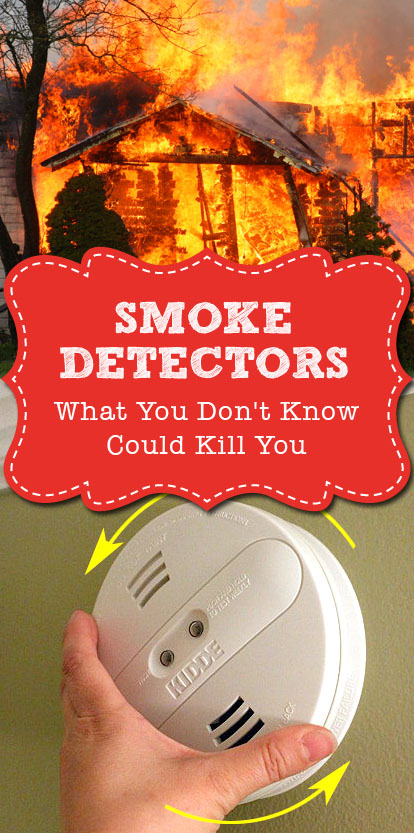
Okay, now that I have your attention, did you know that approximately every three hours, a home fire death occurs somewhere in our nation. And 66 % of those occur in homes without working smoke alarms or detectors?* The most common reason those detectors weren’t working? Worn out or removed battery.
 Photo from CreativeCommons.org – courtesy of WickedChimp
Photo from CreativeCommons.org – courtesy of WickedChimp
I’m sure you have heard that you need to replace your detector batteries every time you change your clocks (Spring and Fall or every 6 months.) Are you good about doing that ? If not, I hope you will now. At the very least decide on a date to change your smoke detector batteries annually.
What about when you are vacationing? Do you test the smoke detectors in your rental house? Testing the detectors takes all of a few minutes to press the “Test” button on each detector and wait for the alarm to sound.
Don’t rely on the vacation homeowner to check the alarms. There is always a chance that renters could have removed a low battery from a detector. Several years ago there was a horrible fire a few blocks away from the beach house we usually rent. Seven young students died in the fire. It was never determined whether the smoke detectors were working or not, but one of the survivors didn’t remember hearing any go off. Don’t let yourself become a statistic.
What type of smoke detector should you buy?
There are two common types of smoke detectors:
1. photoelectric detectors: these are better at detecting smoke and smoldering fires.
2. ionization detectors: they detect minimal amounts of smoke from a hot burning fire with little smoke.
Ionization detectors have a small amount of **alpha radiation in the smoke detector which could pose a danger if you were to inhale it. Therefore, you do not want to be play, poke, or disturb this type of detector, because you don’t want the radiation to become airborne. (This also explains why you can’t throw away an old detector in your regular trash. They need to be disposed of at your local hazardous waste disposal.)
The International Association of Fire Chiefs recommends that smoke alarms in homes should be replaced every 10 years and have both ionization and photo electric smoke alarms to protect from all types of home fires. You can purchase a dual Photo/Ion smoke alarm, like this Kiddie Dual Sensor Photo/Ion alarm (affiliate link).
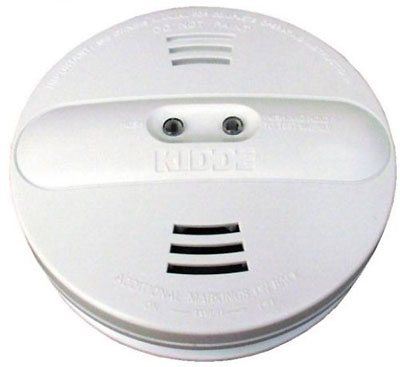
What to do if your smoke detector randomly goes off? If you have determined that there truly is no fire, you can silence the alarm by pressing the button. If it continues to go off (and is over 10 years old), purchase a new one. If the detector is relatively new, you might need to clean it.
Cleaning Your Smoke Detector:
False alarms can happen if dust settles on the photo lens or in between the charged plates in your smoke detector. You can easily clean it with a can of compressed air. Usually this does the trick. If not, consider purchasing a new one. Smoke detectors start at $7 and can cost upwards of $50.
Installing a Battery Operated Smoke Detector:
Battery operated smoke detectors are a snap to install. Once you open the package, be sure to install the new batteries or remove the safety strip (protecting the battery charge) in the new smoke detector.
Remove the existing smoke detector.
Check to see if the new detector will fit in the old mounting ring. If not, remove the old ring and install the new one.
Bonus if you can re-use the same screw holes! If not, mark the location of the new screws and then drill the holes. Insert the screw anchors, then the new mounting ring, and screw the ring to the wall.
Line up the slots and holes on the new detector. Twist the detector into the mounting ring. Now press the test button to check that it is working. That was easy, wasn’t it?
It is important to have at least one smoke detector on each floor of your home. And especially ones near each sleeping area and cooking area. Some building codes require that your detectors are wired to each other.
Once you have working smoke detectors in your home, make sure your family knows what to do in case of a fire. (Ahem, this means you too, not just for the kids!) Does your family have a dedicated meeting spot?
Practice a fire drill in your home:
- Show children how to feel the door before opening it. If it is hot, tell them to leave it closed and show them how to put a pillow or blanket under the door. Then tell them to go to the window and open the window and wait for help.
- If the door is cool to the touch, show them how to crawl on the floor to the nearest exit. Let them try to open the door themselves. We learned that our sons couldn’t open our front door because it is too heavy (and too weather stripped.) So we found a door that they can open and encouraged them to use that alternate door.
- Choose a safe location to meet family members. Our boys know to go to the climbing tree and wait in the tree until we meet them or a fireman retrieves them.
- Talk to your children about not trying to “save” any of their stuffed animals or toys. When we had our oven fire, my son wanted to go back into the house to rescue his stuffed animals. I had to tell him that we can always buy a new toy, but we can’t buy a new son.
- Finally, teach your child how to call 911 (but not in your house if it is on fire.) And be prepared when they dial it one day unbeknownst to you and a police man shows up at your door. Luckily the officer who came to our door was very forgiving.
I hope I’ve impressed upon you the importance of having a working smoke detector and a plan. Take care.
![]()
Resources:

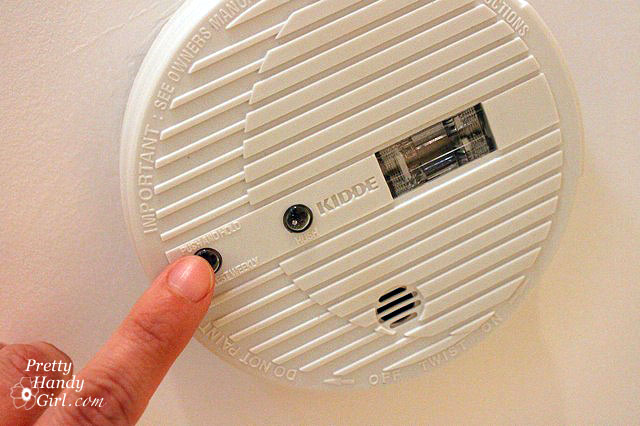
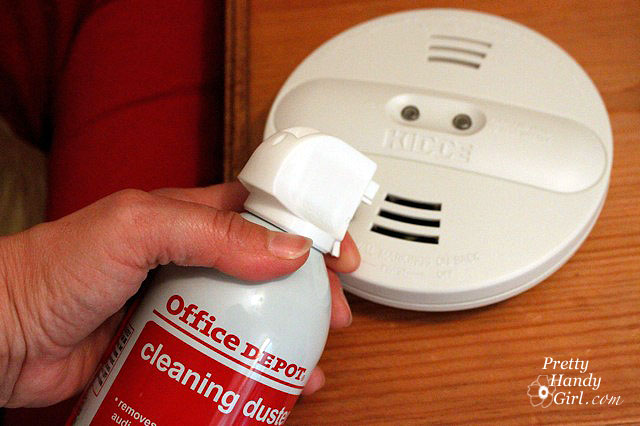
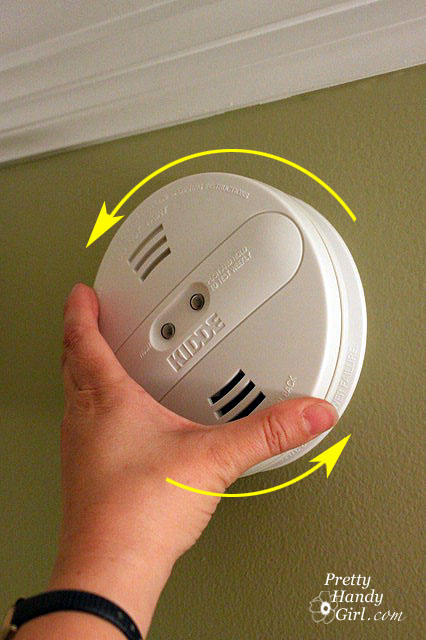
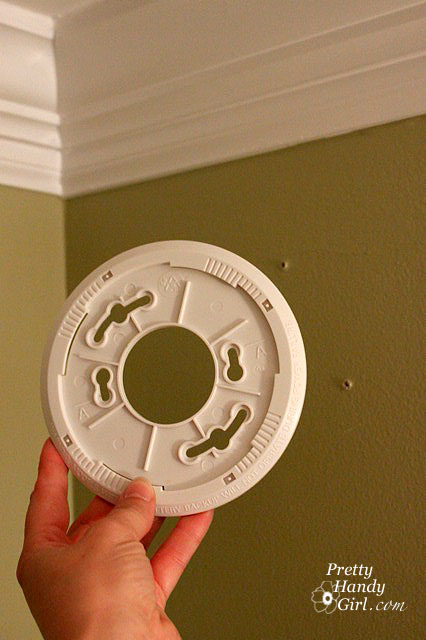
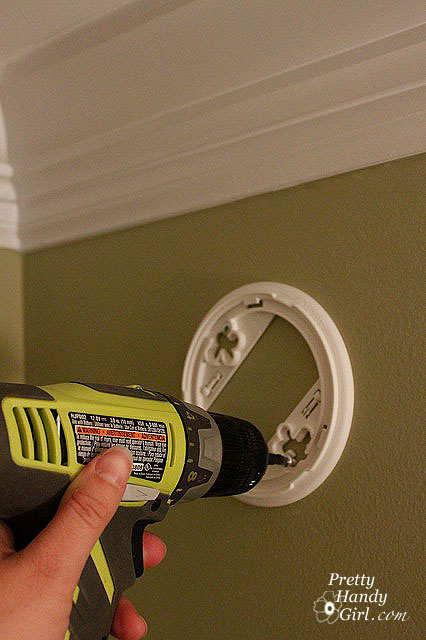
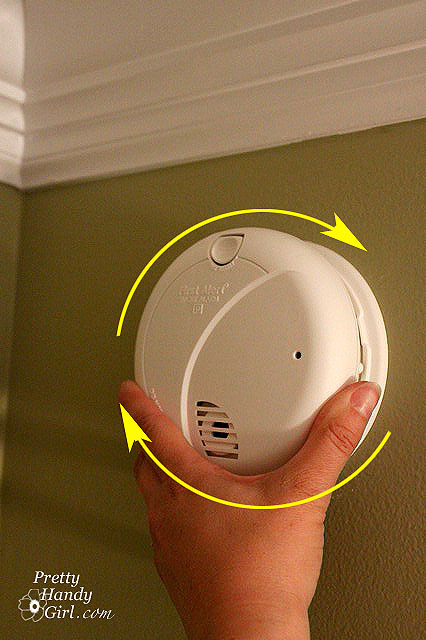

Since you mentioned it, what happens then if all the smoke detectors are wired together? My detectors are over 10 years old, one went of and I couldn’t get it to stop blaring, except by removing/dismantling it completely. So how should I go about replacing the rest of the detectors? Should I just hire an electrician?
Pam, you can hire an electrician if you aren’t familiar with replacing a wired fixture. But, changing a wired smoked detector is very similar to replacing a light fixture. I have several tutorials in my electrical post gallery: https://prettyhandygirl.com/electrical-and-lighting/
Its really helpful, thanks for sharing a post
Thanks for sharing 🙂
okay okay you got me!!! I am so guilty of this right now!!! My alarm was beeping and i couldnt get it to stop…so i dismantled it…you would be proud to know i am getting up right now and going to the Lowes..thank you!!!